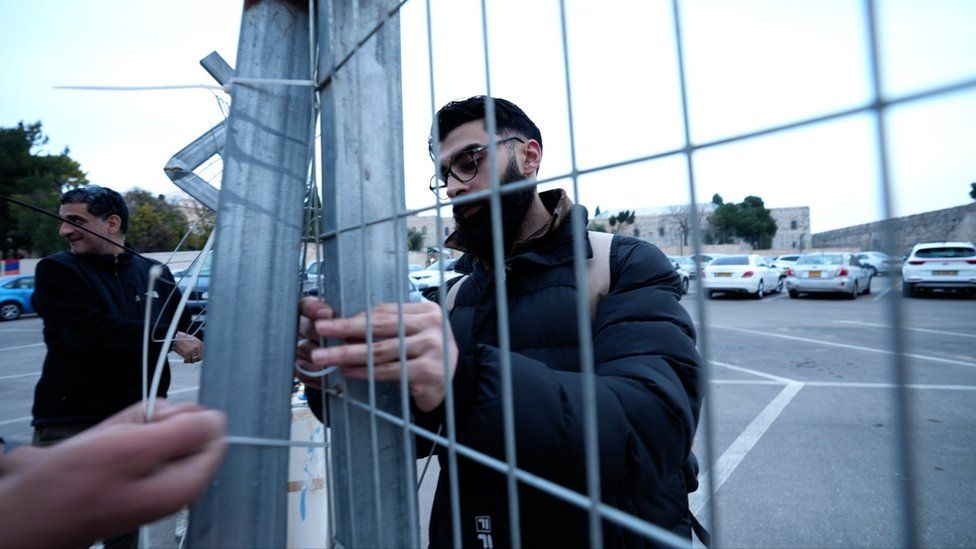-

-
-
Loading

Loading

The Armenians of Jerusalem recently held their annual Christmas celebration on January 19th. However, this year's festivities were overshadowed by the conflict in Gaza and the community's ongoing struggle due to a controversial real estate deal. To protest against the threat to their survival, many Armenians participated in a sit-in at a tent in their church car park, which is part of a large area at risk in the Armenian Quarter of the Old City. The disputed land deal has actually brought the community together, according to Setrag Balian, a ceramicist turned activist. The Armenians have a long history in the holy city, dating back to the 4th century. Many of the approximately 2,000 Armenians in Jerusalem live within the compound of St James Convent, where they have often experienced divisions and conflicts with their church leaders who serve as employers and landlords. For the past two months, local Armenians and priests have been staying in a makeshift tent around-the-clock to try to prevent the development of the disputed land. They take turns guarding a makeshift barricade adorned with Armenian flags. They have successfully repelled attacks from contractors with bulldozers, armed settlers, and masked individuals. The controversial real estate deal came to light in April 2021 when news emerged about a secret contract between the Armenian Patriarch and a Jewish Australian-Israeli developer. The contract granted a newly-formed company, Xana Gardens, a 98-year lease to build and operate a luxury hotel in an area known as the Cow's Garden. This plot includes the church car park, some church buildings, and the homes of five Armenian families, accounting for roughly 25% of the Armenian Quarter. Despite its religious significance and high value, the developer was only required to pay an annual fee of $300,000. The contract faced major opposition from locals, leading Jordan and the Palestinian Authority to withdraw their recognition of the patriarch's role in the deal. Under pressure, the Armenian Church eventually moved to cancel the contract in October, but tensions between Armenians and representatives of the developer escalated, culminating in direct confrontations and violent incidents. Suspicions have arisen that a powerful settler organization is involved in the attempted land takeover, as Jewish settlers have been seen participating in attacks. Jewish investors have been seeking to buy properties in occupied East Jerusalem since Israel captured the Old City in 1967. Palestinians consider this area as the capital of their hoped-for future state, while many Jewish Israelis view the entire city as their eternal, undivided capital. Researchers at Ir Amim, an Israeli non-profit organization focused on the Israel-Palestinian conflict, express concerns about developments in the Armenian Quarter. They believe that the settler organizations involved in this settlement aim to Judaise the Old City and have ambitions for the Temple Mount or al-Aqsa Mosque. The Armenian Church is now taking legal action through Israeli courts to challenge the validity of the contract for the Cow's Garden. The Armenians remain determined, but they are aware that the legal battle could take years, and it remains to be seen if further incursions can be prevented in the meantime.